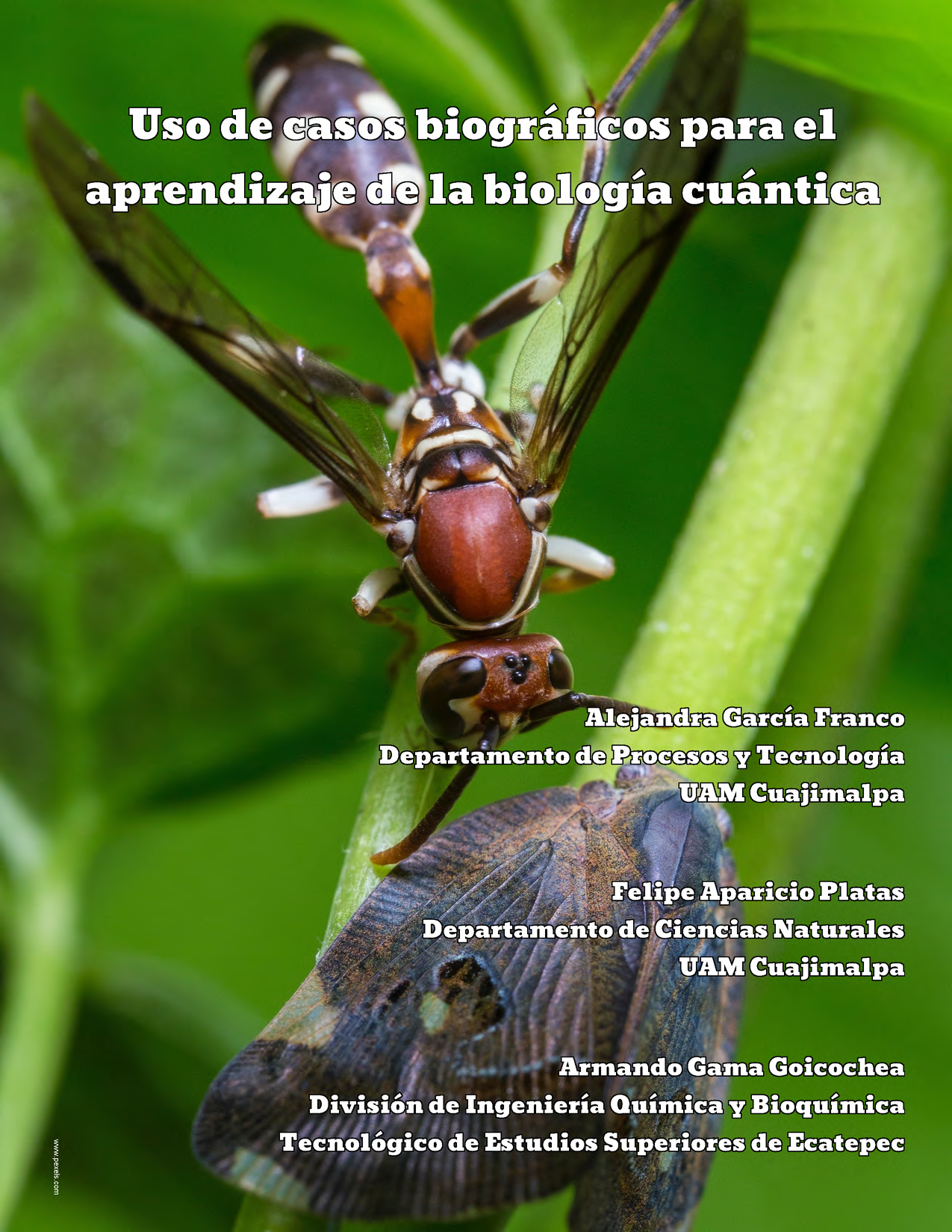Using biographical cases to learn quantum biology
Abstract
It is widely acknowledged that science and engineering university students should learn not only the principles and methods of science but also its nature. Reasons to include aspects of the Nature of Science (NOS) in the curricula are diverse and there is a current debate about the best ways to achieve it. In this paper we present the usage of historical cases in a `Quantum Mechanics for Biology' course. Students were asked to do research on one historical character and relate her/his life to her/his contributions to science and then present findings in a paper and in an oral presentation to the rest of the group. Some of the students answered a questionnaire and were interviewed and they stated that the activity was enlightening and motivating, led to a better understanding of the concepts involved in the course and of the nature of science in general.
Downloads
References
Abd-el-Khalick, F. Teaching With and About Nature of Science, and Science Teacher Knowledge Domains, Science & Education, On-line first, 2012.
Amador-Bedolla C. y Aispuru-Guzik, A. La biología cuántica ¿un nuevo campo de la química? Educación Química, 22(1), 8-11, 2011.
Conant, J. Harvard case histories in experimental science, (Vols 1 & 2). Cambridge, MA: Harvard University Press, 1957. Disponible en línea http://archive.org/stream/harvardcasehisto010924mbp/harvardcasehisto010924mbp_djvu.txt
Duschl, R. y Grandy, R. Two Views About Explicitly Teaching Nature of Scien ce. Science & Education, On-line _rst. 2012.
Garritz, A. La enseñanza de la química para la sociedad del siglo XXI, caracterizada por la incertidumbre Educaci on Qu mica, 21(1), 2-15, 2010.
Herreid, C.F. What Is a Case? Journal of College Science Teaching, 27(2): 92{94, 1997.
Johnston, K. Crawford y Fletcher, P. R. Student difficulties in learning quantum mechanics International Journal of Science Education, 20 (4), 427-446, 1998.
Klopfer, L. E. (1964), The Use of Case Histories in Science Teaching. School Science and Mathematics, 64: 660-666. Lambert, N., Chen, Y.-N., Li, C.-N., Chen, G.-Y. y Nori, F. Quantum Biology. Nature Physics, 9, 10-18, 2013.
Lederman, N. G., Abd-El-Khalick,F. Bell, R. L.,Schwartz, R. S. Views of Nature of Science Questionnaire: Toward Valid and Meaningful Assessment of Learners' Conceptions of Nature of Science, International Journal of Science Education, 39 (6), 497-521, 2002.
Lederman, N. G. Research on Nature of Science: Re ections on the Past, Anticipations of the Future, Asia-Pacific Forum on Science Learning and Teaching, 7 (1), 2006. Disponible en línea:
Mayring, P. Qualitative content analysis: theoretical foundation, basic procedures and software solution. Klagenfurt, 2014. Disponible en línea http://nbnresolving.de/urn:nbn:de:0168-ssoar-395173
Moreira, M. El modelo est andar de la física de partículas Revista Brasileña de Enseñanza de Física, 31(1), 1306, 2009.
Morris, T. E y Gahl, S. A recipe for invention: Scientists biographies. National Center for Case Study in Science Teaching Disponible en línea. http://sciencecases.lib.buffalo.edu 2003.
Muller, R. y Wiesner, H. Teaching quantum mechanics on an introductory level. American Journal of Physics. 70, 200-209, 2002.
Niaz, M. Critical Appraisal of Physical Science as a Human Enterprise. Dynamics of Scientifc progress. Dordrecht: Springer. 2009.
Padilla, K. y Van Driel, J. H. Relationships among cognitive and emotional knowledge of teaching quantum chemistry at university level, Educación Química. 2012.
Sandoval, W. Understanding students' practical epistemologies and their influence on learning through inquiry. Science Education, 89(4), 634{656. 2005.






